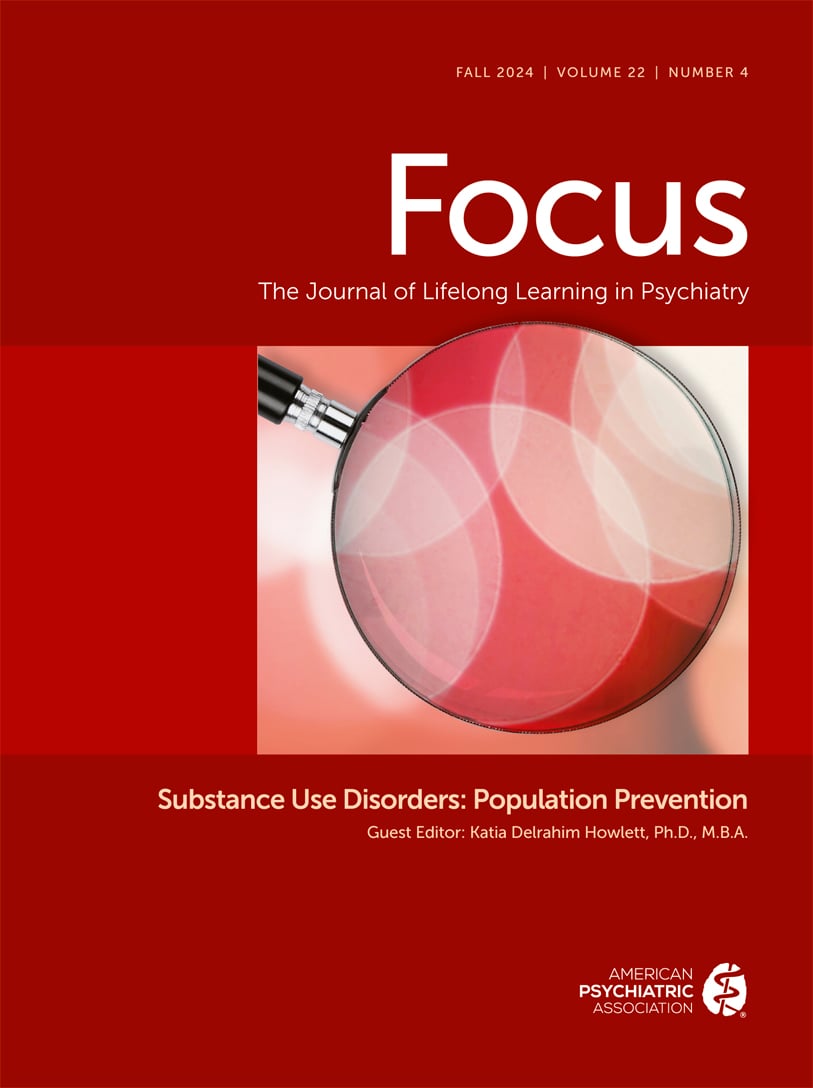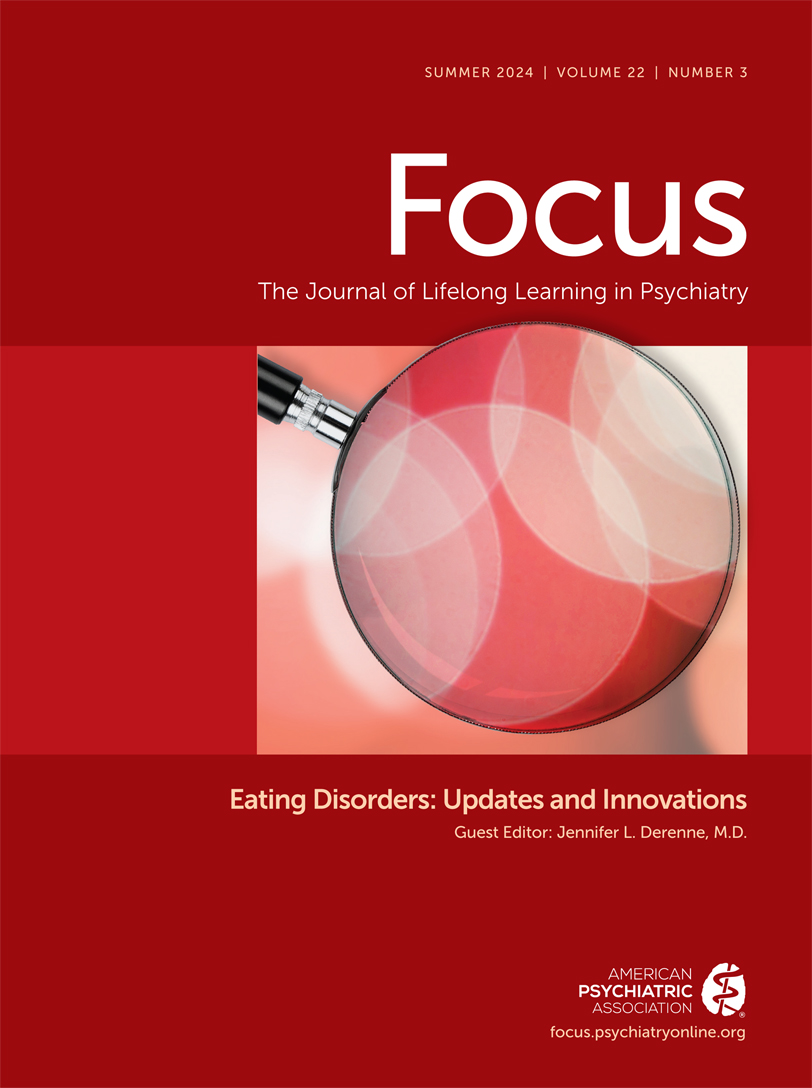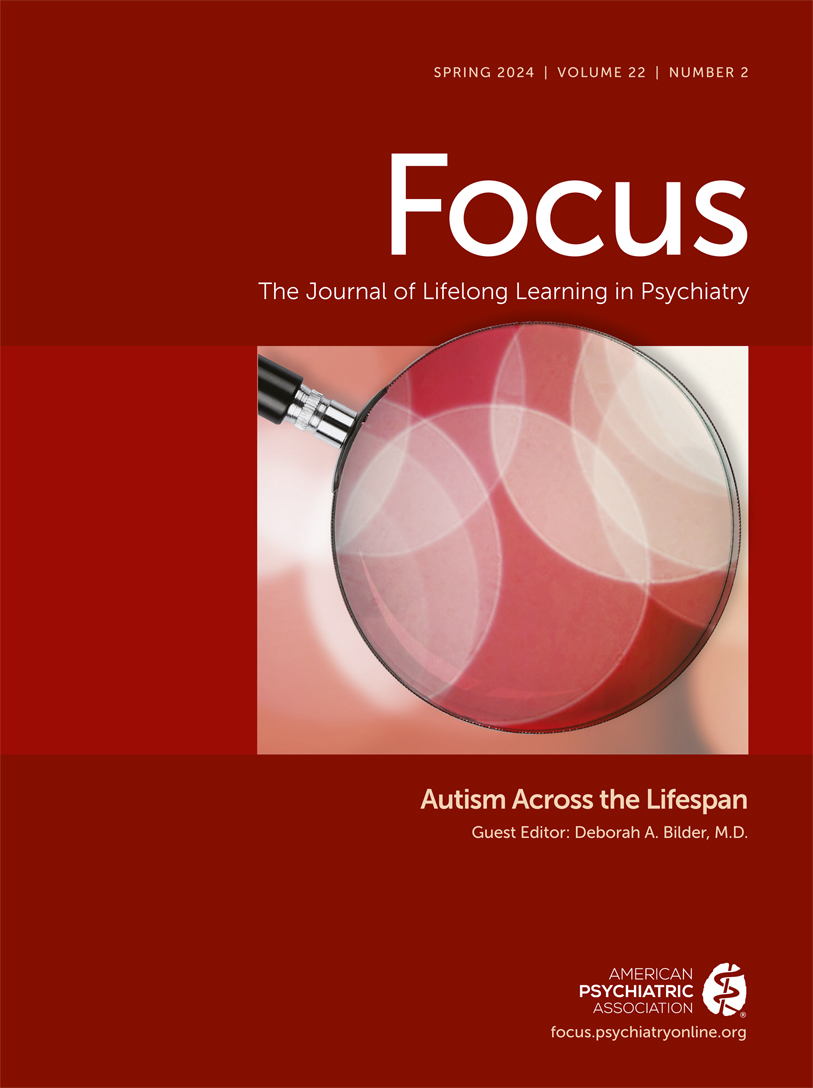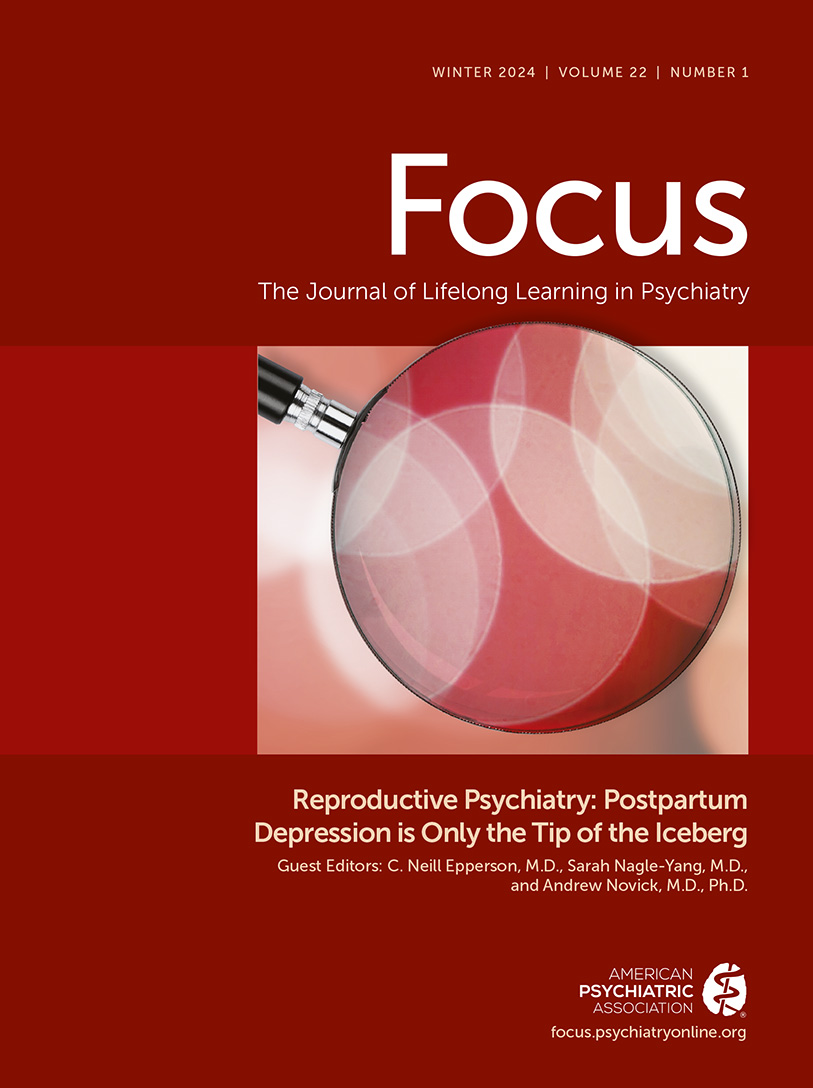Focus
- Volume 8
- Number 3
- July 2010
FROM THE GUEST EDITORS
CLINICAL SYNTHESIS
Publication date: 01 July 2010
Pages307–315A variety of strategies and methods are used in investigating the nature of the underlying susceptibility genes and the genomics of psychiatric disorders. In this primer, the authors introduce basic concepts of genetics and describe various study designs ...
https://doi.org/10.1176/foc.8.3.foc307Publication date: 01 July 2010
Pages316–322Depressive disorders are commonly occurring psychiatric conditions that tend to run in families. They are heterogeneous and complex, predicted to involve the interplay between multiple genes and nongenetic risk factors, such as stressful life events. ...
https://doi.org/10.1176/foc.8.3.foc316Publication date: 01 July 2010
Pages323–338Since the early 20th century, both schizophrenia (SZ) and bipolar disorder (BP) have been observed to run in families. This link was conclusively determined to be at least in part genetic in a number of twin and/or adoption studies. With the introduction ...
https://doi.org/10.1176/foc.8.3.foc323Publication date: 01 July 2010
Pages339–349Autism spectrum disorder (ASD) is a neurodevelopmental disorder characterized by deficits in social interaction, language, and behavioral flexibility. ASD is extremely heterogeneous, with variations among patients observed both in these core behavioral ...
https://doi.org/10.1176/foc.8.3.foc339Publication date: 01 July 2010
Pages350–357Obsessive-compulsive disorder (OCD) is a neuropsychiatric disease and a complex genetic illness. Genetic studies have demonstrated that both biological and environmental factors are important in the etiology of OCD. OCD family studies published since the ...
https://doi.org/10.1176/foc.8.3.foc350Publication date: 01 July 2010
Pages358–365The inheritance pattern of schizophrenia is complex, with increased rates of illness observed among the first- and second-degree relatives of affected individuals but only about 60% concordance among monozygotic twins. This pattern has been interpreted as ...
https://doi.org/10.1176/foc.8.3.foc358Publication date: 01 July 2010
Pages366–379Ethical considerations in psychiatric genetics are highly complex and fluid. This review introduces the reader to the wide range of ethical considerations in this field by examining four characteristics of genetic information. First, genetic information ...
https://doi.org/10.1176/foc.8.3.foc366Publication date: 01 July 2010
Pages383–386This exercise is designed to test your comprehension of material presented in this issue of FOCUS as well as your ability to evaluate, diagnose, and manage clinical problems. Answer the questions below, to the best of your ability, on the information ...
https://doi.org/10.1176/foc.8.3.foc383INFLUENTIAL PUBLICATIONS
Publication date: 01 July 2010
Pages387–390This section contains a compilation of recent publications that are shaping the thinking in the field as well as classic works that remain important to the subject reviewed in this issue. This bibliography has been compiled by experts in the field and ...
https://doi.org/10.1176/foc.8.3.foc387Publication date: 01 July 2010
Pages398–416Evidence of marked variability in response among people exposed to the same environmental risk implies that individual differences in genetic susceptibility might be at work. The study of such Gene-by-Environment (GxE) interactions has gained momentum. In ...
https://doi.org/10.1176/foc.8.3.foc398Publication date: 01 July 2010
Pages417–434Objective: The authors conducted a review of the history and empirical basis of genomewide association studies (GWAS), the rationale for GWAS of psychiatric disorders, results to date, limitations, and plans for GWAS meta-analyses. Method: A literature ...
https://doi.org/10.1176/foc.8.3.foc417Publication date: 01 July 2010
Pages435–448Many neurological and most psychiatric disorders are not due to mutations in a single gene; rather, they involve molecular disturbances entailing multiple genes and signals that control their expression. Recent research has demonstrated that complex “...
https://doi.org/10.1176/foc.8.3.foc435Publication date: 01 July 2010
Pages449–458Research advances in psychiatric genetics have raised expectations that genetic findings might lead to major breakthroughs in psychiatric nosology. The author reviews the plausibility of these claims. Four areas are addressed. First, it is argued that ...
https://doi.org/10.1176/foc.8.3.foc449Publication date: 01 July 2010
Pages459–470Objective: This study was undertaken to clarify how genetic liability and stressful life events interact in the etiology of major depression. Method: Information about stressful life events and onset of major depressive episodes in the past year was ...
https://doi.org/10.1176/foc.8.3.foc459Past Issues
View Issues Archive
Vol. 22 | No. 4

Vol. 22 | No. 3

Vol. 22 | No. 2
